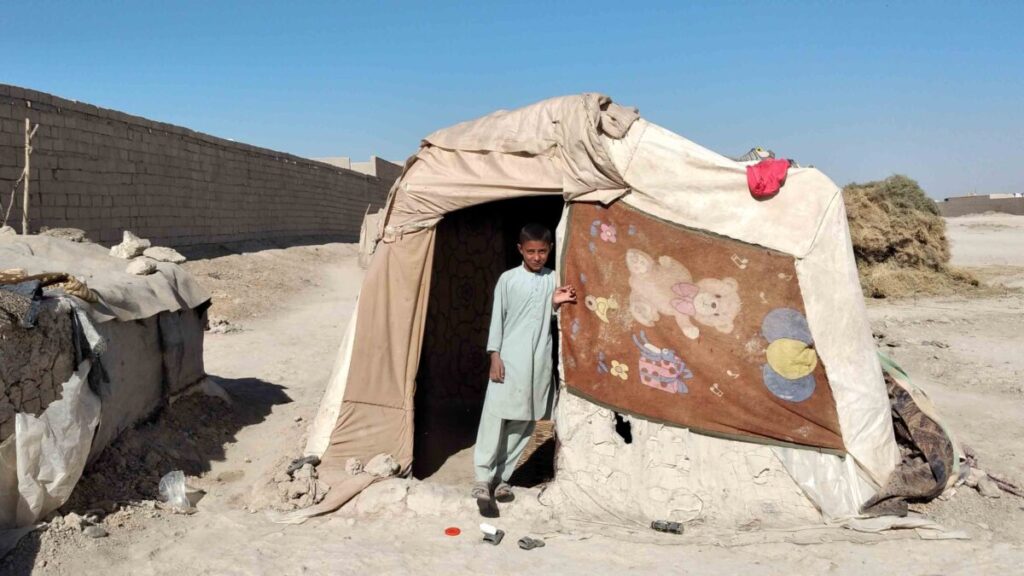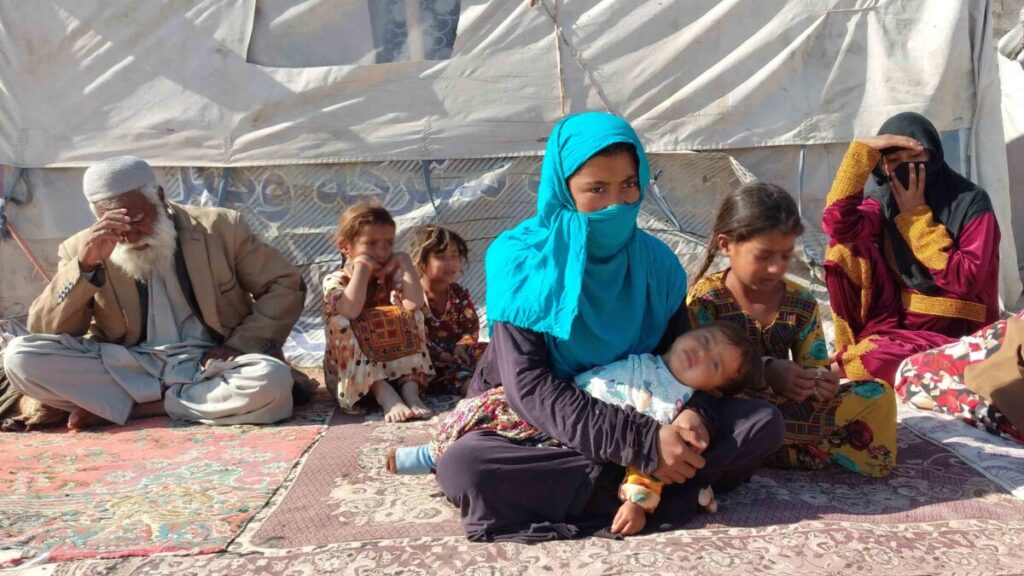Dozens of displaced families in Nimroz province in the west of the country said on Wednesday that relevant institutions have not been supportive of them, which has had a profound impact on their lives.
At least 50 families have been living in tents in the suburbs of Zaranj city for over a year, and have limited access to health services, education and humanitarian aid.
“We have been displaced over the past year due to conflict as our homes were destroyed and we moved here to Nimroz,” said Dawlat Mohammad, 65, a representative of the displaced families.
“We are faced with a lack of food, clothes, water and services,” he said, adding that of the 12 families who are his responsibility, as a representative, each has six to 10 members.

Fatima, 30, a woman from the displaced families, said they all share common problems when it comes to the lack of access to food and other basic facilities for daily life.
“We have one blanket and we are five people. We use it in turns… My children have become ill due to the cold weather but we cannot afford to buy medicines for them,” she added.
Poor health services
Those living in the community said they have problems when dealing with the health services in the city of Zaranj.
“I went to the provincial hospital in Zaranj but they pushed me out and did not give me medicine… No one is paying attention to us,” said Shiba, mother of two children.

Three other members of the displaced families who spoke to Amu shared common issues.
Taliban’s response
Head of the Taliban for migrants and repatriation department in Nimroz, Sediqullah Nasrat, said the families are living in tents “as it has been their lifestyle for years.”
“They’re used to this. It is their lifestyle. They have lived like this for years in Zaranj and they are not counted as displaced people,” said Nasrat.
He said the families can benefit from health services and education.
“Based on our survey, we could not find displaced persons in Nimroz,” he concluded.
The city of Zaranj is visited by a large number of people every day due to it being a border town with Iran, but residents say not enough attention is being paid to the province to improve services.




